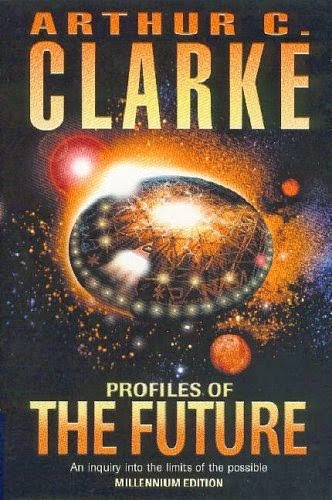>Exámenes selectividad inglés Cataluña resueltos
 One day - it may be in this century, or it may be a thousand years from now - we will discover a really efficient means of propelling our space-vehicles. The ultimate speed for spaceships is the velocity of light. They will never reach that goal, but they will get very close to it. And then the nearest star will be less than five years’ voyaging from Earth.
One day - it may be in this century, or it may be a thousand years from now - we will discover a really efficient means of propelling our space-vehicles. The ultimate speed for spaceships is the velocity of light. They will never reach that goal, but they will get very close to it. And then the nearest star will be less than five years’ voyaging from Earth.
Our exploring ships will spread outwards from their home over an ever-expanding sphere of space. It is a sphere which will grow at almost the speed of light. So, looking far into the future we must picture a slow (little more than half a billion miles an hour!) expansion of human activities outwards from the Solar System, among the suns in the region of the galaxy where we now find ourselves. These suns are on the average five light-years apart; in other words, we can never get from one to the next in less than five years.
At this point we will deal with an obvious objection. Can we be sure that the velocity of light is a limiting factor? So many ‘impassable’ barriers have been broken in the past; perhaps this may go the way of all the others.
Scientists believe that light can never be outraced* by any form of radiation of any material object. Let us assume the contrary and see where it gets us. We will even take the most optimistic case, and imagine that the speed of transportation may eventually become infinite.
Picture a time when, by the development of techniques as far beyond our present engineering as a transistor is beyond a stone axe*, we can reach anywhere we please instantaneously, with no more effort than dialling a number. This would indeed cut the Universe down, and reduce its physical immensity to nothingness. What would be left?
Everything that really matters. For the Universe has two aspects -its scale, and its breathtaking complexity. Having abolished the first, we are now face-to-face with the second.
What we must now try to visualize is not size, but quantity. The directories for such cities as London and New York are already getting somewhat out of hand, but they list only about a million - 106- numbers- The Cosmic Directory would be 1014 times bigger to hold its 1020 numbers.
To continue our fantasy a little further, here is another consequence of 20-digit telephone number. Think of the possibility of cosmic chaos if dialling just a wrong digit in 27945015423811986385 could put you at the wrong end of the universe. And it is still possible that this is not enough and we may need bigger numbers to keep score of the stars, and even more to number their planets.
Before such numbers, even spirits brave enough to face the challenge of the light-years must quail*. The detailed examination of all the grains of sand on all the beaches of the world is a far smaller task than the exploration of the universe.
(From Profiles of the Future by Arthur C. Clarke. Adapted)
* outrace: sobrepassar, avançar / aventajar, adelantar* axe: destral / hacha* quail: espantar-se, retrocedir / espantarse, retroceder
READING COMPREHENSION
Answer the following questions according to the information in the text Space Travel.
1. What are the main space-travelling problems?
Travelling speed: [Several aspects / considerations related to speed mentioned in the text may be accepted as total or partial answers]
Complexity: (The huge number of stars and their planets) / (The possibility of cosmic chaos without a good indexing / numbering system)
2. Does Arthur Clarke consider the speed of light impossible to overcome?
Copy a sentence that expresses his point of view.
He is not sure but feels optimistic about it. [“Yes” and “no” answers, if (well) reasoned, will be accepted.].
3. What could lead to chaos?
The Cosmic Directory would be 1014 times bigger than the phone directories of New York and London, which contain 106 numbers, to hold its 1020 stars and their planets.
With instant transportation, dialling just a wrong digit could put you at the wrong end of the universe.
4. Which of the following sentences summarises the text best?
a) Space conquest will go through stages. First, we will create a powerful means of driving spaceships to break all speed barriers. Then, we will bring order into the chaos in the Universe -some kind of numerical system to be able to calculate distances and communicate by phone.
c) The future will bring an efficient means of propelling our spaceships and breaking the speed of light without radiation of space objects. Then, our engineers will create transistors for instant transportation beyond our galaxy and order to communicate with distant stars.

No hay comentarios:
Publicar un comentario